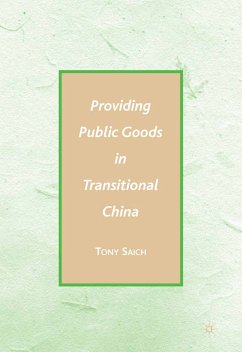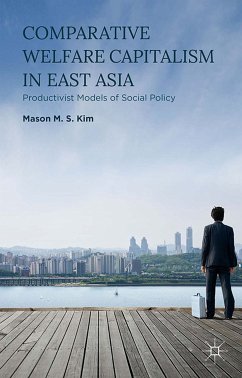Dieser Download kann aus rechtlichen Gründen nur mit Rechnungsadresse in A, B, BG, CY, CZ, D, DK, EW, E, FIN, F, GR, HR, H, IRL, I, LT, L, LR, M, NL, PL, P, R, S, SLO, SK ausgeliefert werden.
"The dark side of China s extraordinary growth has been the collapse of obsolete health and welfare systems. Are the Chinese people going to get adequate care? How do their leaders think about this? How do their efforts compare with other countries? What do the Chinese people think about the results? The answers are crucial to China s people, to China s stability, and ultimately to the world. Saich digs deeper, with broader perspective,and more objectively than any previous study. One small aspect, his charts on how Chinese people view the performance of their government, is alone worth the price of the book." -William H.Overholt, Director, RAND Center for Asia Pacific Policy
"Although China's rapid growth has substantially reduced poverty and improved welfare, widening income disparities and worrisome inequities in access to public goods have spurred efforts by the central government to construct a 'harmonious society' with the help of a more inclusive and market oriented welfare system based on social citizenship. The existing decentralized and minimalist system, which is largely managed and financed by local authorities, is being displaced by a four legged arrangement in which the contributions of the state and the family will be increasingly supplemented by the market and by NGOs. This is a centerpiece of China's reform agenda and vital for sustaining growth with stability. This important book by a China expert of the first rank, lucidly reviews the development of China's welfare system and analyzes its complex dynamics with a special focus on health issues. By drawing upon a wealth of recent scholarship, his own first hand knowledge of the subject matter, and the findings of a wide ranging survey, Tony Saich provides a searching assessment of critical ongoing reforms, of how theseare perceived by the public and of what they imply for the future roles of the state, of civil society and private suppliers of services." - Shahid Yusuf, Economic Advisor World Bank









